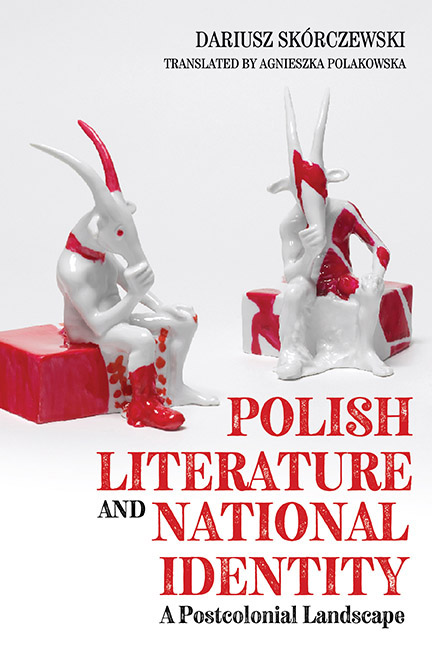Book contents
- Frontmatter
- Dedication
- Contents
- Acknowledgments
- Prologue: How It All Began
- 1 Through the Lens of Humanism, with a View to Transcendence
- 2 Postcolonialism in Poland
- 3 National Identity in a Postcolonial Framework: Necessary Clarifications and Opening Suggestions
- 4 Literature as Compensation: Comprador Intelligentsia vis-à-vis the Hegemonic Discourse—Preliminary Theoretical Remarks
- 5 Confronting the Romantic Legacy
- 6 The Natives’ Exclusion by the Empire's Poet? (Adam Mickiewicz, The Crimean Sonnets)
- 7 Identity as an Object of Inquiry (Pawel Huelle's Castorp)
- 8 The (East-)Central European Complex (Andrzej Stasiuk, On the Road to Babadag and Fado)
- 9 Colonized Poland, Orientalized Poland: Postcolonial Theory and the “Other Europe”
- 10 Slavic Issues with Identity: Marginal Notes to Maria Janion's Uncanny Slavdom
- 11 The Melancholia of Borderlands Discourse
- Afterword: Three Warnings
- Notes
- Bibliography
- Index
11 - The Melancholia of Borderlands Discourse
Published online by Cambridge University Press: 25 March 2020
- Frontmatter
- Dedication
- Contents
- Acknowledgments
- Prologue: How It All Began
- 1 Through the Lens of Humanism, with a View to Transcendence
- 2 Postcolonialism in Poland
- 3 National Identity in a Postcolonial Framework: Necessary Clarifications and Opening Suggestions
- 4 Literature as Compensation: Comprador Intelligentsia vis-à-vis the Hegemonic Discourse—Preliminary Theoretical Remarks
- 5 Confronting the Romantic Legacy
- 6 The Natives’ Exclusion by the Empire's Poet? (Adam Mickiewicz, The Crimean Sonnets)
- 7 Identity as an Object of Inquiry (Pawel Huelle's Castorp)
- 8 The (East-)Central European Complex (Andrzej Stasiuk, On the Road to Babadag and Fado)
- 9 Colonized Poland, Orientalized Poland: Postcolonial Theory and the “Other Europe”
- 10 Slavic Issues with Identity: Marginal Notes to Maria Janion's Uncanny Slavdom
- 11 The Melancholia of Borderlands Discourse
- Afterword: Three Warnings
- Notes
- Bibliography
- Index
Summary
La mélancolie est le regret d’un autre monde mais je n’ai jamais su quel était ce monde.
(Melancholia is a regret felt for another world, but I am yet to discover which one.)
—Emile M. Cioran, Cahiers 1957–1972 (June 27, 1958)Nostalgia, Melancholy, and Psychoanalysis The atmosphere that prevails in Polish critical discourse on the literature and culture of the Borderlands is tangibly nostalgic. In the Polish context, the Borderlands refer to the former commonwealth's eastern and southeastern territories, which are located outside Poland since the end of World War II and presently fall within the boundaries of Lithuania, Belarus, and Ukraine. There is even a Polish neologi sm coined to describe the unique emotional aura that characterizes Borderlands discourse: “kresonostalgia,” which translates rather awkwardly into English as “borderl and nostalgia.” This supposedly unique type of nostalgia is defined as “an important differentiator of literature after the November Uprising as well as the First and the Second World War. Purely elemental, it does not lend itself to commonsensical persuasion and control of reason. Borderland nostalgia was an everyday torture and torment that brought on states of depression while also, paradoxically, becoming sometimes an energizing and patriotic feeling.” The ambivalent character of nostalgia for the lost Borderlands conveyed by this quote—its torment and depressiveness on the one hand and its elemental nature, irrationality, and energy on the other—suggests that this affect is a specific variant of a well-known, intersubjective psychological experience that has been the subject of numerous philosophical and psychological studies. The affect in question is melancholia.
Among various types of melancholia there exists one called “postcolonial melancholia.” Paul Gilroy describes it as “cultural disorientation that accompanies the collapse of imperial certainties into postcolonial nihilism,” and looks for the reasons behind this “collapse” in the end of the British Empire’s colonial enterprise and its consequent loss of dominance on the world stage. Th e Polish case is more complicated both from a historical and a geopolitical perspective. Poland, formerly the Polish-Lithuanian Commonwealth that included large parts of present-day Ukraine and Belarus, lost its imperial position at the end of the eighteenth century as a result of the partitions. Its territory was divided and subordinated to the rule of Russia, Austria, and Prussia.
- Type
- Chapter
- Information
- Polish Literature and National IdentityA Postcolonial Landscape, pp. 208 - 236Publisher: Boydell & BrewerPrint publication year: 2020



